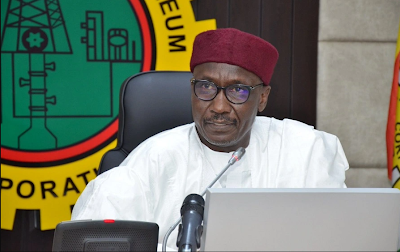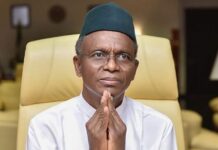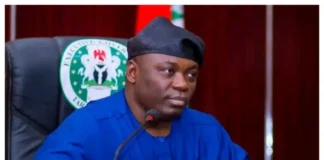“We believe that normalcy will be restored very soon”
The Nigeria National Petroleum Company (NNPC) Limited says it supports the decision of the new administration to scrap petrol subsidy payments.
President Bola Tinubu, in his inaugural speech on Monday, announced that the costly subsidy payments has ended.
Soon after the pronouncement, queues resurfaced at filling stations in some parts of the country.
The Independent Petroleum Marketers Association (IPMAN) reportedly linked the development to Tinubu’s announcement, adding that the queues were caused by panic buying.
Speaking at a press conference later on, Mele Kyari, group chief executive officer (GCEO) of NNPC, welcomed the decision to end subsidy on premium motor spirits (PMS).
Kyari said the cost of subsidy has been a huge burden on the continued operations of the national oil company.
“We have been funding the subsidy from the cash flow of the NNPC since government is unable to defray the costs of subsidy that is due to the cooperation and we believe that this will free resources for the NNPC to continue to do the great work that this company will do for our country, and it allows us to continue to function as a very commercial entity that will work on this development,” he said.
“Secondly, we would like to assure Nigerians that we have sufficient supply of petroleum products, particularly premium motor spirit in our country. And there is no reason to panic.
“We understand people will be scared of potential changes to the price of petrol, but that is not enough for people to rush to fuel stations to buy more than what they need.”
Kyari also assured that the company is watching all the distribution networks and support facilities.
“We believe that normalcy will be restored very soon,” he said.
Following a N3.35 trillion subsidy budget in 2022, the previous administration, led by Muhammadu Buhari, former president, said under-recovery payments would stop in June 2023.
On April 5, the federal government said it secured the sum of $800 million from the World Bank, as part of its post-subsidy palliative plans.















